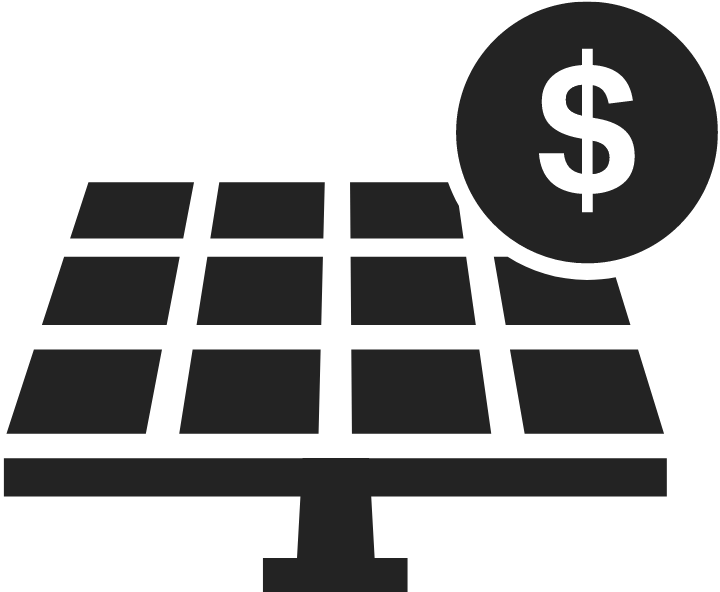The U.S. Environmental Protection Agency announced plans to rescind $7 billion in grants for bringing solar power to low-income communities. The move is part of the Trump administration’s ongoing cuts to government support for renewable energy that could jeopardize the efforts of 60 state agencies, Native American tribes and nonprofits that were awarded funds in 2024.
EPA administrator Lee Zeldin cited the recent passage of the One Big Beautiful Bill Act (OBBBA), which he said eliminated the Solar for All program, adding that the decision will save taxpayer money.
“EPA no longer has the statutory authority to administer the program or the appropriated funds to keep this boondoggle alive,” Zeldin said in a social media post on Thursday.
The administration claims the Greenhouse Gas Reduction Fund (GGRF), which administers the Solar for All program, was riddled with “financial mismanagement, conflicts of interest, and oversight failures.” The EPA pointed, without substantiating evidence, to $20 billion in grants that it said were wrongly distributed to political allies of the Biden administration.
The attempted rollback of funding for the Solar for All program will likely face legal challenges from organizations that were counting on the grants. Zeldin’s announcement comes as electricity bills across the country are rising, and the $7 billion solar grant program was designed to help lower electric bills for communities in need. The Trump administration, however, has criticized solar power as unreliable, and this is just the latest action to reverse Biden-era policies that supported renewable energy.
What is the Solar for All program?
Passed as part of the 2022 Inflation Reduction Act, the Solar for All program was set up to provide 900,000 low-income households with solar power as part of the Biden administration’s efforts to reduce greenhouse gas emissions.
In April 2024, the EPA unveiled selections of 60 recipients. More than half of the money — about $4.2 billion — went to state agencies. The states determine the best way to administer their allocated funds. This approach of allowing states to create their own process is typical for large federal grant programs.
For example, New Mexico received a $156 million grant. The Energy, Minerals and Natural Resources Department will distribute funds for solar projects benefitting low-income households earning at or below 80% of the area median income or those already enrolled in federal assistance programs. Solar contractors and installers will receive funding through a competitive bidding process, while apartment building owners can also access grants to install solar systems that benefit their tenants. New Mexico planned to start the application process later this year.
In his announcement, Zeldin said the grant program “diluted” taxpayer funds by passing through multiple organizations and called the program a “green slush fund.”
Can the EPA legally take grant money away?
In addition to slashing tax credits for wind and solar power, the OBBBA also repealed the Greenhouse Gas Reduction Fund.
In attempting to cancel the $7 billion solar grant program, Zeldin said he is following the law, after President Donald Trump signed the bill on July 4. Already, the EPA faces lawsuits from recipients of grants under other Biden-era programs.
Unbiased. Straight Facts.TM
The Trump administration is seeking to cancel the $7 billion Solar for All grant program that sent $4.2 billion to state agencies for low-income solar programs.
Jillian Blanchard, a vice president at the nonprofit coalition Lawyers for Good Government, said the Trump administration’s rationale for canceling solar grants is “absolutely ludicrous,” in a Canary Media article. Blanchard, who is involved in a lawsuit against the EPA’s removal of other environmental grants, added that the key legal classification is obligated versus unobligated grants.
Federal grants are considered obligated once a final contract is signed between the grant recipient and a federal agency. Sometimes, grant recipients are announced, but the agreements are not complete, making those awards unobligated. Only $19 million in the Greenhouse Gas Reduction Fund remained unobligated when Trump signed his signature bill, according to the Congressional Budget Office.
Blanchard said the bill “only rescinded unobligated grant funds.” The Trump administration, however, disagrees, and lawsuits over Solar for All grants are very likely.
Kym Meyer, litigation director at the Southern Environmental Law Center, told The Associated Press that if the Trump administration proceeds, “we will see them in court.”
Click this link for the original source of this article.
Author: Devin Pavlou
This content is courtesy of, and owned and copyrighted by, https://straightarrownews.com and its author. This content is made available by use of the public RSS feed offered by the host site and is used for educational purposes only. If you are the author or represent the host site and would like this content removed now and in the future, please contact USSANews.com using the email address in the Contact page found in the website menu.








